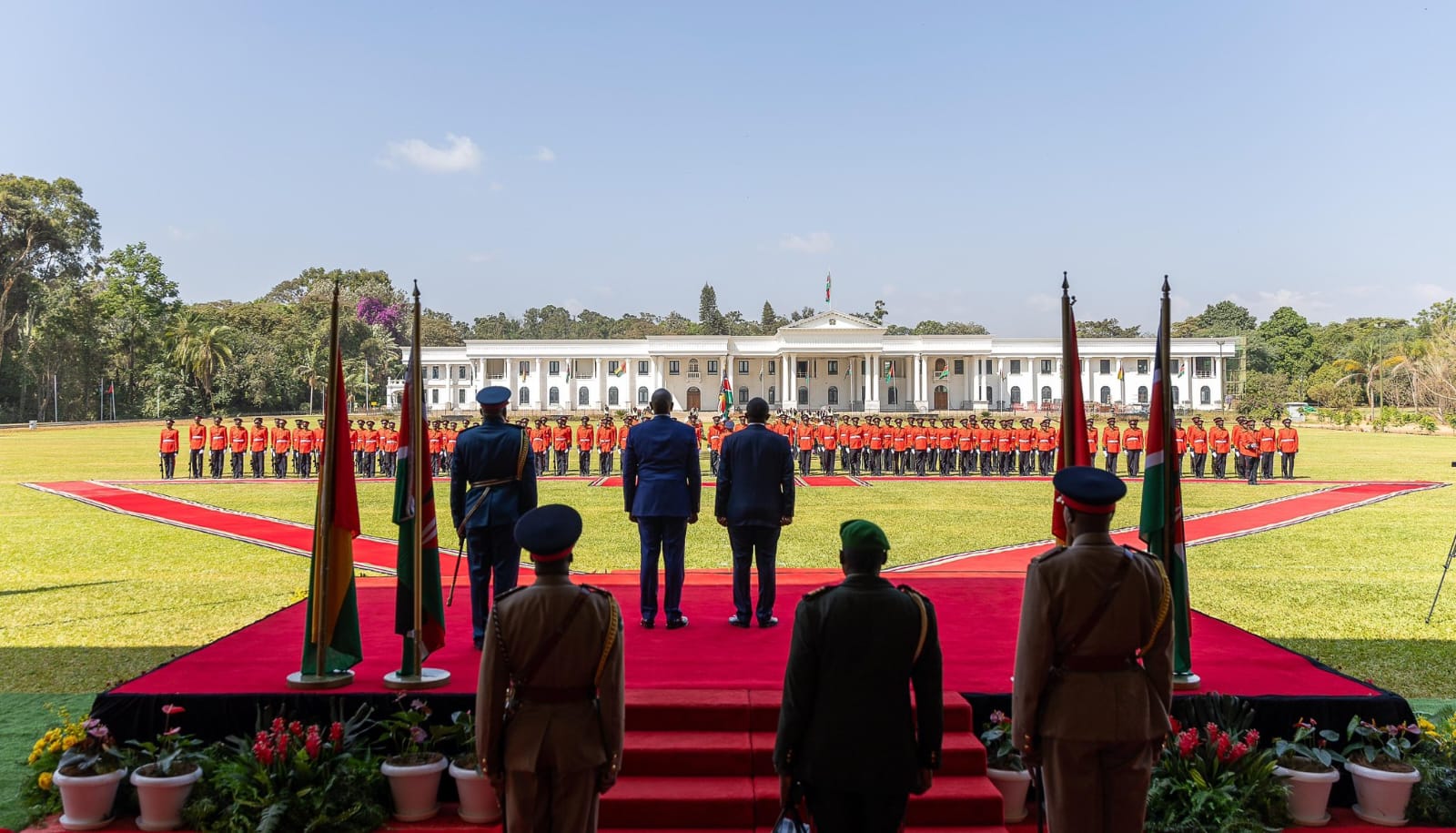
Hello and welcome to the Money News Roundup, where we are covering State House expenditures and why 11 banks risk losing their licenses.
The Controller of Budget (CoB) revealed that between May 14 and June 24, 2025, the Treasury approved Ksh3.6 billion for State House to cover domestic travel, hospitality, fuel, and vehicle maintenance.
As reported in the Business Daily, these late disbursements, made under Article 223 of the Constitution, were meant for emergencies but have sparked concern. The CoB only approved Ksh2.3 billion of the total in seven batches.
CoB Margaret Nyakang’o criticized the use of emergency funds for routine expenditures, citing poor budget planning.
Treasury CS John Mbadi approved Ksh1.5 billion on May 14, followed by several withdrawals, and another Ksh850 million on June 13. Following recent protests, the government pledged spending cuts, especially on travel, amid mounting scrutiny over public funds misuse
Meanwhile, in Citizen Digital, the Executive Office of the President is reported to have spent an average of Ksh2.2 million daily on printing services in the 2024–2025 financial year.
Out of a Ksh4.6 billion budget, Ksh817 million went to printing alone, covering government policies, executive orders, press statements, and high-end invitation cards.
The office also spent Ksh1.9 billion on administration and Ksh765 million on leadership services.
Advisory services cost Ksh1 billion, including Ksh450 million for counter-terrorism and Ksh251 million for public oversight.
11Tier III commercial banks in Kenya must raise a combined Ksh15 billion by December 2025 or risk losing their licenses, following new capital requirements set by the Central Bank of Kenya (CBK).
As reported in the Business Daily, the new rules demand that core capital rise from Ksh1 billion to Ksh3 billion by the end of 2025, progressing to Ksh10 billion by 2029 under the Business Laws (Amendment) Act, 2024.
The banks are expected to meet the gap through shareholder rights issues, stake sales, mergers, or injections from parent firms.
The affected banks include Paramount Bank, M-Oriental, ABC Bank Kenya, Premier Bank, CIB International Bank, Middle East Bank Kenya, Development Bank of Kenya (DBK), UBA Kenya, Credit Bank, Access Bank Kenya, and the state-owned Consolidated Bank.
Consolidated Bank has the largest capital shortfall at Ksh3.7 billion, while others like Access Bank Kenya and Credit Bank have deficits of Ksh3.4 billion and Ksh1.72 billion, respectively.
Foreign-owned banks, such as UBA Kenya and Access Bank, are banking on capital from parent companies.
CBK Governor Kamau Thugge says the new rules aim to boost the sector’s resilience and may trigger mergers and acquisitions in the coming months.
Kenyans are increasingly embracing unconventional insurance by covering livestock, crops, pets, and even trees, moving beyond traditional car and health insurance.
According to the Business Daily, this shift is driven by rising climate-related risks and banks requiring insurance before issuing loans to farmers.
Data from the Insurance Regulatory Authority shows that by the end of 2024, 610,905 Kenyans had insured 2.96 million livestock, paying Ksh1.06 billion in premiums for potential payouts of Ksh15.75 billion.
Insurance coverage for cows was the largest at Ksh9.4 billion. Kenyans are also insuring pets like dogs and rabbits, with some paying premiums for covers worth millions.
Insurers such as CIC, GA, and Britam are also offering aquaculture insurance amid growing awareness and the need for protection against escalating climate risks.
Members of the Metropolitan National Sacco have approved a forensic audit to investigate financial irregularities that have driven the once-profitable institution into insolvency.
At the AGM held on August 30, 2025, reports revealed an untraceable loan book asset worth Ksh50 billion and a negative shareholder equity of Ksh12 billion. The audit will be done to uncover fraud or embezzlement.
The AGM also approved the appointment of independent external auditors for 2024. At the AGM, a revival plan was presented with a focus on fund recovery and governance reforms.
Meanwhile, a court petition has challenged the AGM’s legality, with a hearing set for September 17. Read more from the Business Daily here.
Education Principal Secretary Julius Bitok has attributed the delay in disbursing school capitation funds to a nationwide verification exercise aimed at eliminating fraud.
As reported by Citizen Digital, Bitok stated that the verification exercise was informed by the Auditor General’s report, which exposed allocations to ghost schools.
Schools are required to submit student data through the Unique Personal Identifier (UPI) system for validation.
As of August 27, 2025, 20,000 schools (66% of the total) had been verified, with the process expected to end by Friday.
Meanwhile, secondary school heads have raised concerns over the delayed release of the remaining 20% of third-term funds, warning they may send students home due to mounting financial pressures.
Join 1.5M Kenyans using Money254 to find better loans, savings accounts, and money tips today.

Money 254 is a new platform focused on helping you make more out of the money you have. We've created a simple, fast and secure way to find and compare financial products that best match your needs. All of the information shown is from products available at established financial institutions that our team of experts has tirelessly collected.

